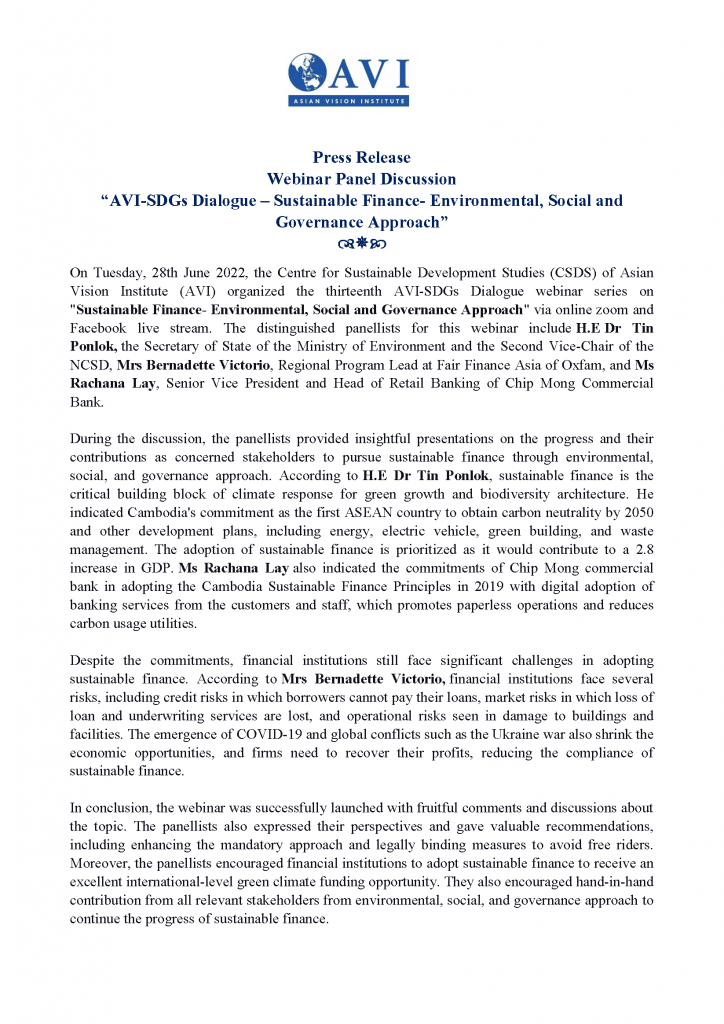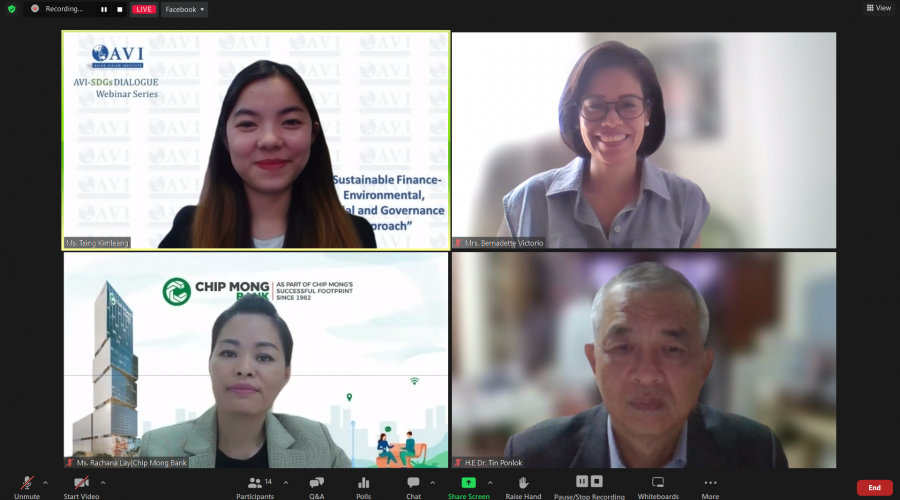On Tuesday, 28th June 2022, the Centre for Sustainable Development Studies (CSDS) of Asian Vision Institute (AVI) organized the thirteenth AVI-SDGs Dialogue webinar series on “Sustainable Finance- Environmental, Social and Governance Approach” via online zoom and Facebook live stream. The distinguished panellists for this webinar include H.E Dr Tin Ponlok, the Secretary of State of the Ministry of Environment and the Second Vice-Chair of the NCSD, Mrs Bernadette Victorio, Regional Program Lead at Fair Finance Asia of Oxfam, and Ms Rachana Lay, Senior Vice President and Head of Retail Banking of Chip Mong Commercial Bank.
During the discussion, the panellists provided insightful presentations on the progress and their contributions as concerned stakeholders to pursue sustainable finance through environmental, social, and governance approach. According to H.E Dr Tin Ponlok, sustainable finance is the critical building block of climate response for green growth and biodiversity architecture. He indicated Cambodia’s commitment as the first ASEAN country to obtain carbon neutrality by 2050 and other development plans, including energy, electric vehicle, green building, and waste management. The adoption of sustainable finance is prioritized as it would contribute to a 2.8 increase in GDP. Ms Rachana Lay also indicated the commitments of Chip Mong commercial bank in adopting the Cambodia Sustainable Finance Principles in 2019 with digital adoption of banking services from the customers and staff, which promotes paperless operations and reduces carbon usage utilities.
Despite the commitments, financial institutions still face significant challenges in adopting sustainable finance. According to Mrs Bernadette Victorio, financial institutions face several risks, including credit risks in which borrowers cannot pay their loans, market risks in which loss of loan and underwriting services are lost, and operational risks seen in damage to buildings and facilities. The emergence of COVID-19 and global conflicts such as the Ukraine war also shrink the economic opportunities, and firms need to recover their profits, reducing the compliance of sustainable finance. In conclusion, the webinar was successfully launched with fruitful comments and discussions about the topic. The panellists also expressed their perspectives and gave valuable recommendations, including enhancing the mandatory approach and legally binding measures to avoid free riders. Moreover, the panellists encouraged financial institutions to adopt sustainable finance to receive an excellent international-level green climate funding opportunity. They also encouraged hand-in-hand contribution from all relevant stakeholders from environmental, social, and governance approach to continue the progress of sustainable finance.




